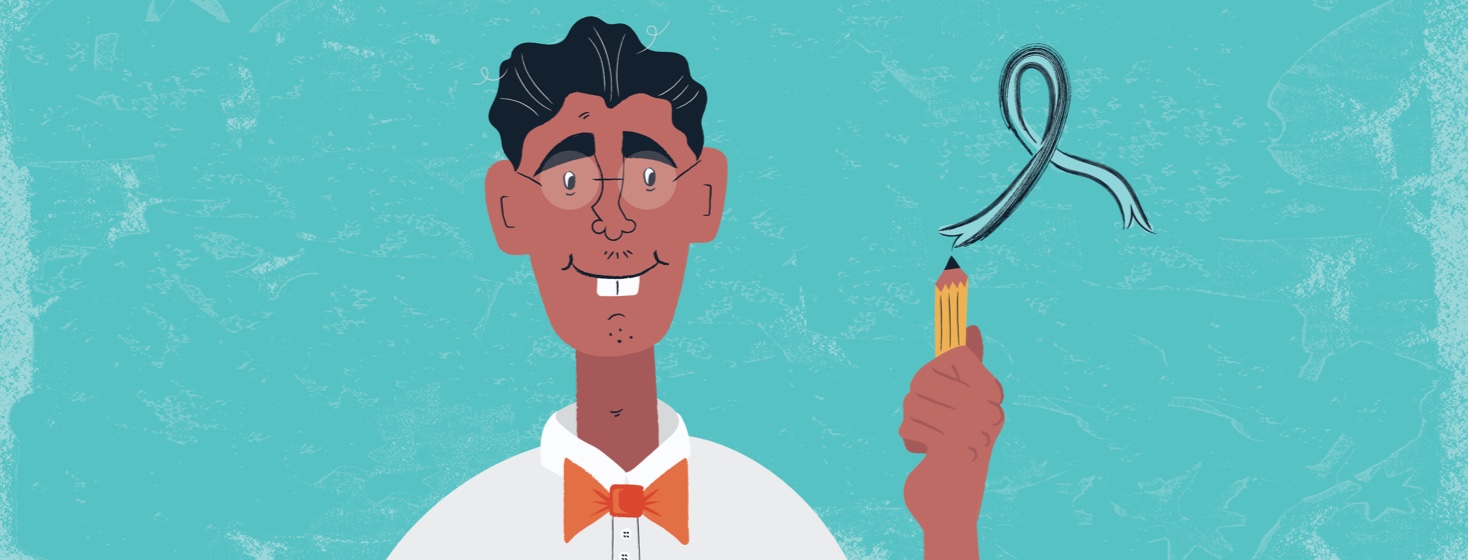The Joy of the Cancer Nerd
I have a confession to make: I’m a big nerd.
Specifically, I’m a big cancer nerd.
I could go by other names. Cancer geek. Maybe cancer anorak. Some say those terms mean slightly different things. Maybe so. I’ll let the word nerds debate that.
But to me, they all mean the same thing: someone who cares a lot about one subject, spends a lot of time thinking about it, and gets joy out of doing it.
So, yes, I’m a cancer nerd.
I think about cancer, every day. Most days I read or write about it, for my blog, for Blood-Cancer.com, or just for my own enjoyment.
Enjoyment?
Yes. I really do enjoy it.
A cancer nerd is born
I was diagnosed 12 years ago with follicular lymphoma, an indolent, incurable blood cancer that sometimes turns into an aggressive, fast-growing cancer. When I was diagnosed, I had lots of questions. My oncologist was very good about answering them all. Because my cancer has remained slow-growing, my time between oncologist appointments became longer, and my questions piled up. I started to look for answers on my own.
I learned pretty quickly that there is a lot of good information online, and a lot of bad information, too. The good information is usually backed up by solid research. The bad information is usually backed up by “a guy who works with my cousin” or by “they” (as in “they’ve done studies”). I’ll believe it when it’s published in a medical journal, thank you very much. Such is the way of the cancer nerd.
Knowledge doesn't make me anxious, the lack of it does
For those early appointments after diagnosis, sometimes I’d bring articles from medical journals that I had read before my oncologist did.
One day, as I left the exam room to get my blood tested, the oncologist pulled my wife aside. “See if you can get him to stop reading so much,” he said to her. “It’s just going to make him anxious.” My wife laughed. “Yeah, sure. You really think I can get him to stop reading?”
Such is the way of the cancer nerd. We’re unstoppable.
I know the oncologist gave her that advice out of love. Many patients with a slow-growing cancer like mine go years without needing treatment. Doing all of that reading, he knows, really can make someone more anxious than they need to be. He was looking out for my mental health.
But that’s not how it is for a cancer nerd. The knowledge doesn’t make us anxious. It’s the lack of knowledge that does. The searching and finding bring us joy.
The nerd at work
I’ll give you an example. A couple of weeks ago, while I was waiting for an oil change, I started thinking about clinical trials. I wondered just how many blood cancer treatments have been approved by the FDA since I was diagnosed in January 2008.
The answer is 58.1 (It might be a few more; honestly, there were so many that I lost count.) And 12 of them alone have been approved for my cancer, follicular lymphoma. Sure, even those 12 won’t be appropriate for every FL patient. Some are for first treatments, and some for patients who have already had multiple treatments.
Still, how could I not find joy in seeing so many new treatments approved? How could I not find hope?
Who’d think to even do that, except a cancer nerd?
We all deal with our cancer in the way that makes the most sense to us. I know some patients with a slow-growing blood cancer like mine who see the doctor twice a year, and want to know one thing: Do I have anything to worry about? No? Good. See you in six months.
I understand that. But it’s not me. I want to share what I’ve been reading, and know what my oncologist is excited about.
Such is the way of the cancer nerd.

Join the conversation